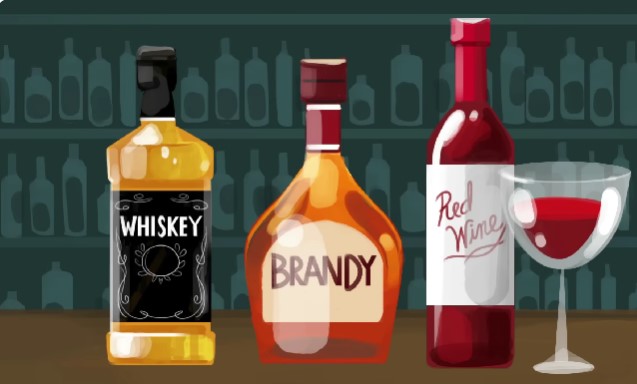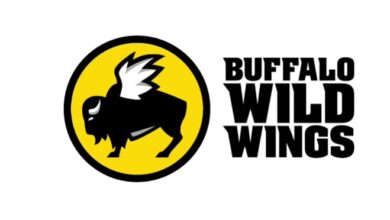Is Ethanol Alcohol Halal
The permissibility of consuming or using ethanol alcohol in Islam is a complex issue that involves different interpretations and guidelines. This article delves into whether ethanol is considered halal, exploring various perspectives and conditions under which it may be deemed permissible or prohibited.
Introduction
The question of whether ethanol alcohol is halal is significant for many Muslim consumers seeking to ensure that their dietary and lifestyle choices comply with Islamic principles. Ethanol, commonly found in various products from foods to personal care items, poses a unique challenge due to its association with alcoholic beverages. Understanding the nuances of Islamic rulings on ethanol can help Muslims make informed decisions about their consumption and usage. This article examines the different factors and opinions regarding ethanol’s halal status, providing a detailed analysis to guide Muslim consumers.
What is Ethanol?
Ethanol, also known as ethyl alcohol, is a type of alcohol used in various applications, including beverages, food products, and industrial processes. It is produced through the fermentation of sugars by yeast or through synthetic means. Ethanol is a key ingredient in alcoholic beverages, but it is also found in many everyday products such as flavorings, extracts, and even hand sanitizers.

Islamic Rulings on Ethanol
Differentiating Between Types of Alcohol
Islamic scholars differentiate between types of alcohol based on their source and purpose. There are generally two categories:
- Khamr (Intoxicating Alcohol): Derived from grapes or dates, this type of alcohol is strictly prohibited (haram) in any quantity because it is considered impure and intoxicating.
- Non-Khamr Alcohol: Alcohols not derived from grapes or dates, such as ethanol produced from sugar cane or other sources, have different rulings depending on their use and potential for intoxication.
Permissibility Based on Quantity and Purpose
Islamic jurisprudence often considers the quantity and intended use of ethanol when determining its permissibility:
- Minuscule Amounts in Food and Drink: Small amounts of ethanol that do not cause intoxication and are not consumed for recreational purposes are generally deemed permissible. For example, soft drinks may contain trace amounts of ethanol, but these are typically considered halal because they do not intoxicate even in large quantities.
- Use in Food Flavorings and Extracts: Ethanol used as a solvent in food flavorings and extracts is usually permissible if it constitutes less than 0.5% of the product and is not derived from prohibited sources. The final product should contain no more than 0.1% ethanol.
Common Products Containing Ethanol
Understanding where ethanol might be present helps Muslim consumers make informed choices:
- Soft Drinks: Often contain trace amounts of ethanol, but are generally considered halal.
- Vanilla Extracts: Typically contain ethanol but are permissible due to their widespread use and the necessity in the food industry.
- Vinegars: Certain vinegars, like white wine vinegar, undergo a chemical transformation that makes them halal despite being originally made from wine.
- Personal Care Products: Ethanol in sanitizers and perfumes is usually permissible, especially when derived from non-khamr sources.
Where to Buy Halal-Certified Products
Consumers seeking halal-certified products can find them at specialized stores or online retailers. Many manufacturers now seek halal certification to cater to Muslim consumers, ensuring that their products meet Islamic dietary laws.
Frequently Asked Questions
Is Ethyl Alcohol Halal?
Ethyl alcohol, also known as ethanol, is typically not considered Halal when derived from sources like grapes, dates, or grains used in alcoholic beverages. However, ethanol produced synthetically or from non-Haram sources can be considered Halal by some scholars, especially if used in non-intoxicating ways such as in medicines or cleaning products.
What is Ethyl Alcohol?
Ethyl alcohol is a colorless, flammable liquid with a distinct odor, produced by fermenting sugars. It is commonly found in alcoholic beverages but also used in cosmetics, pharmaceuticals, and as a fuel additive.
Can Ethyl Alcohol be used for food?
Yes, ethyl alcohol can be used in food as long as it is certified Halal and derived from Halal sources. It may be used as a preservative, a flavoring agent, or in some beverages.
Is Ethyl Alcohol Haram in All Cases?
While generally considered Haram due to its intoxicating nature, some scholars allow the use of ethyl alcohol in small amounts for medicinal purposes or as a preservative, provided it is not used to intoxicate.
Can Ethyl Alcohol be used in Cosmetics and Pharmaceuticals?
Yes, ethyl alcohol is widely used in cosmetics and pharmaceuticals. In these applications, it is often deemed Halal by some scholars since it is not intended for intoxication.
What is the Difference Between Halal and Haram Alcohol?
Halal alcohols, such as isopropyl alcohol and methanol, are non-intoxicating and used in cleaning agents or cosmetics. Haram alcohols, like ethanol found in alcoholic beverages, are intoxicating and thus forbidden in Islam.
How Can I Verify if a Product Containing Ethanol is Halal?
You can verify a product’s Halal status by checking for Halal certification from recognized bodies. This ensures that the ethanol used is from a Halal source and the product complies with Islamic guidelines.
Is Halal Certification Necessary for Non-Meat Products?
Yes, Halal certification is essential for non-meat products like processed foods, cosmetics, and dietary supplements to ensure they do not contain any Haram ingredients or cross-contamination.
Are All Halal Certifications the Same?
No, Halal certifications vary by certifying body. Each has its own standards and processes for ensuring compliance with Halal guidelines, so it’s important to check the certification details.
What Does Halal Certification Involve?
Halal certification involves a thorough review of ingredients, production processes, and storage practices to ensure they meet Halal standards. This often includes on-site inspections and continuous monitoring.
Can Halal and Non-Halal Products be Produced in the Same Facility?
Producing Halal and non-Halal products in the same facility is challenging and requires strict separation to avoid cross-contamination. Complete physical separation of raw materials, equipment, and storage areas is essential.
What Happens if a Halal Product is Contaminated with Haram Ingredients?
If a Halal product is contaminated with Haram ingredients, it is no longer considered Halal. Production must be stopped, and contamination sources must be eliminated to regain Halal status.
Are All Types of Seafood Halal?
Most Islamic scholars agree that all types of seafood are Halal, based on Quranic verses allowing the consumption of sea game. However, some schools of thought have specific restrictions.
What is the Halal Certification Process?
The Halal certification process includes an application, review of raw materials and production processes, on-site inspections, and compliance checks to ensure no Haram contamination.
Why is Halal Certification Important?
Halal certification is crucial for providing transparency and assurance to Muslim consumers that the products they purchase comply with Islamic dietary laws, especially in non-Muslim majority countries.
Where Can I Buy Halal Certified Products?
Halal certified products can be found in many supermarkets, specialty Halal stores, and online retailers. Always look for Halal certification marks on the packaging to ensure compliance.
Conclusion
The question of whether ethanol alcohol is halal depends on various factors, including its source, quantity, and intended use. While ethanol derived from grapes or dates and used in intoxicating quantities is strictly prohibited, small amounts used in food flavorings or personal care products are often permissible. By understanding these nuances, Muslim consumers can make informed decisions and ensure that their choices align with their religious beliefs. Always check for halal certification and consult knowledgeable sources when in doubt.
Read also: Is Alcohol Halal





